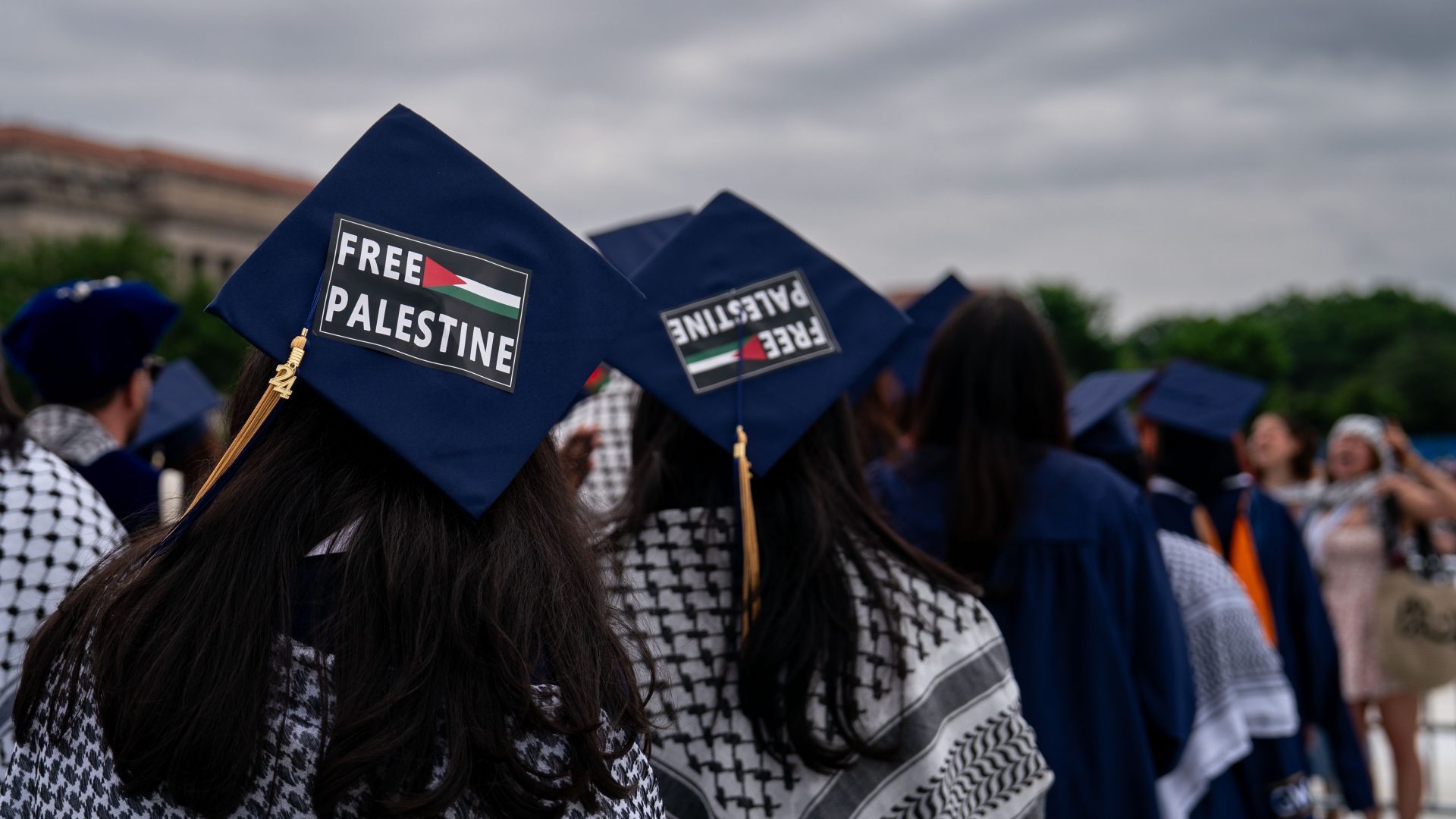I support the idea of a state for the Palestinian people. I also support the right of the state of Israel to exist and to live in peace.
And, as the former chancellor of a university, what I also support are the student protests against the situation in Gaza.
Each student must feel safe there: all genders; all abilities; all ethnicities; all ages; all religions; and nationalities. Universities contain the real world. But they also contain a world of enquiry and experiment that involves conflicting points of view and challenges to the status quo.
That means that students are there not only to experience the world as it is, but as it could be. You experiment with and hopefully experience the better. You learn how to achieve that.
One consequence of a liberal university education is that most of the students who receive it tend to end up caring about other people, and so it is only natural that they should be concerned about the circumstances in which other people have to live. We have taught them to fight against injustice – but we have given them little regard for consequences. They have scant knowledge of any trauma except for the personal.
That is a problem, because the present Israel-Gaza war, and the many decades of violence and horror in the near East that precede it, are a dual trauma rooted in dual tragedies.
And there is another trauma out there, nowhere near as large, but a trauma all the same – the memory of the pandemic. I think that it, too, is fuelling the students and their drive and their rage. The students who are currently having their graduation ceremonies cancelled due to the protests began university during lockdown.
Yet as I watch them, I feel like the audience at a horror movie screaming “Don’t open that door!” In 1968, our elders were screaming the same thing and we didn’t listen either. A relative who lives in Chicago, where I was born, brought up and went to university in the late ’60s early ’70s, emailed me this:
“Well if there is a massive protest outside or near the Democratic National Convention at least it won’t be in downtown Chicago like it was in 1968. The DNC will be at the United Center this time which is located at 1900 West Madison street where there will be a huge Chicago police presence along with street closings and barriers.”
I was downtown in ’68. I was against the Democratic Party’s “machine” candidate, and in favour of an anti-war senator named Gene McCarthy. I was straight-up “Clean For Gene”. I had already decided that, if I had been old enough, I would not be voting in the presidential election at the end of the year.
The Hilton hotel was located on north Michigan Avenue. The Avenue is built like the great boulevards of Paris, so there is a long swath of street, prairie-flat and all the way down to Lake Michigan, which is like a sea.
I can still see the Chicago Police Department – the notorious CPD – lined up shoulder to shoulder. They not only had batons, they were armed and helmeted.
They had had a good workout earlier in the spring with the urban uprising following the assassination of Martin Luther King. Bobby Kennedy had been gunned down a few weeks later. It had been a bad year.
In those days, the cops did not read you your rights. You had no mask to cover your face; no social media to document what happened to you. Plus, if you were African-American or Latino, you can be pretty sure that your treatment was going to be very, very bad.
The Vietnam War had stepped up a phase. Guys were fleeing to Canada or to Europe or to Mexico to avoid the draft. Trump got out of Vietnam by deferment. A lot of rich guys managed to do that.
The Republican nominee was the former vice president Richard Nixon. We didn’t care about him, because we figured that Nixon and the Democratic nominee were the same. It turned out that they weren’t.
What emerged, in opposition to us, was what came to be called “the silent majority”. What we didn’t understand was that, like now, most Americans didn’t give a damn what we protested about. They were concerned with the cost of living, and other issues such as crime. Like now.
A recent comedy sketch on US TV had an African-American New York City parent yelling: “Free? Free? I tell you what AIN’T free! Columbia University!”
He then goes on to list all the jobs that he holds down so that his daughter can get a degree from this prestigious school.
Columbia costs a little over $66,000 a year and the average US wage is about $64,000. In other words, these protesting students are perceived as the elite, just like we were back in the ’60s, although we didn’t realise that. We also didn’t realise what that meant in a presidential election year.
Enter Donald Trump, who vows to crack down on the protests, which he considers to be “anti-American”. If he wins, he will also gain the power to alter the Constitution itself. This is where the US is right now. The protests risk reinforcing Trump’s “anti-elite” message. They risk making him politically stronger – just like Nixon back in the ’60s.When I think of what I experienced in ’68 and after, I recall that line spoken by the man who survives in Moby Dick: “I only am escaped alone to tell thee.”










